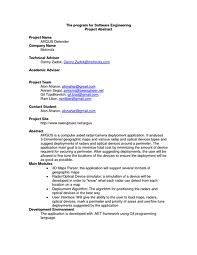HOW TO
DESIGN AN ABSTRACT
.jpg) |
| ABSTRACT SAMPLE |
What is an abstract?
An
abstract is a concise summary of a completed research project or paper. A well-written abstract will make the reader
want to learn more about your research, read your paper, or attend your
presentation. Abstracts also serve as a
summary of the research so the paper can be categorized and searched by subject
and keywords.
How long is an
abstract?
Generally,
abstracts are limited to 200 to 300 words, but the exact word limit will be
stated by the publication, conference, or organization requesting the abstract.
Components of an abstract
1.
Motivation or Statement of Problem: Why
do we care about the problem? What practical, theoretical, scientific, or
artistic gap is your research filling?
2.
Methods or Approach: What did you
actually do to get your results? Did you
analyze three plays, interview 125 students, write a memoir, invent a more
powerful photovoltaic cell, or translate a book? Did you approach your subject
using a specific theoretical framework, technical procedure, or methodology?
3. Results or Product: As a result of
completing the above procedure or investigation, what did you learn, create, or
invent?
4.
Conclusions or Implications: What are the larger implications of your
findings, especially for the problem or gap identified in Step 1?
There is no single
format for writing a successful abstract!
The
emphasis placed on each component will depend on your field or discipline. In some, cases, the methods will require more
emphasis and explanation, while in other cases, the results and implications
will require more explanation and emphasis.
You are not required to follow the order of the four components above.
See the following
pages for examples of successful abstracts from various fields.
Tips for writing an abstract
1. It takes lots of revision to write a good
abstract! Expect to spend some time preparing your abstract before submitting
it.
2.
Find the main point of your paper or research and phrase it in a way that can
be understood by an educated non-expert.
3.
You may repeat sentences from your paper in your abstract. In some cases, your paper’s introductory
paragraphs may be suitable for the abstract, but they will have to be condensed
and rewritten to fit the purposes of the abstract.
4. Remember to use keywords important to your
field of research or to use words that indicate your field (biochemical
engineering, for example, or the history of Byzantine art).
5.
Your abstract should not be so detailed that it requires quotations, citations,
or footnotes. Remember, it’s a summary!
6.
If you are finding it difficult to summarize your paper or research concisely,
write several paragraphs initially then cut and condense it to one paragraph.
7. If you are finding it difficult to meet the
word limit, seek the help of an outsider reader (a friend or writing tutor) to
help you cut excess words.



.jpg)




.jpg)

.jpg)